Unzue pushes for substitute riders in Grand Tours
Movistar manager backs partial budget limits, slams cobbled Tour stage
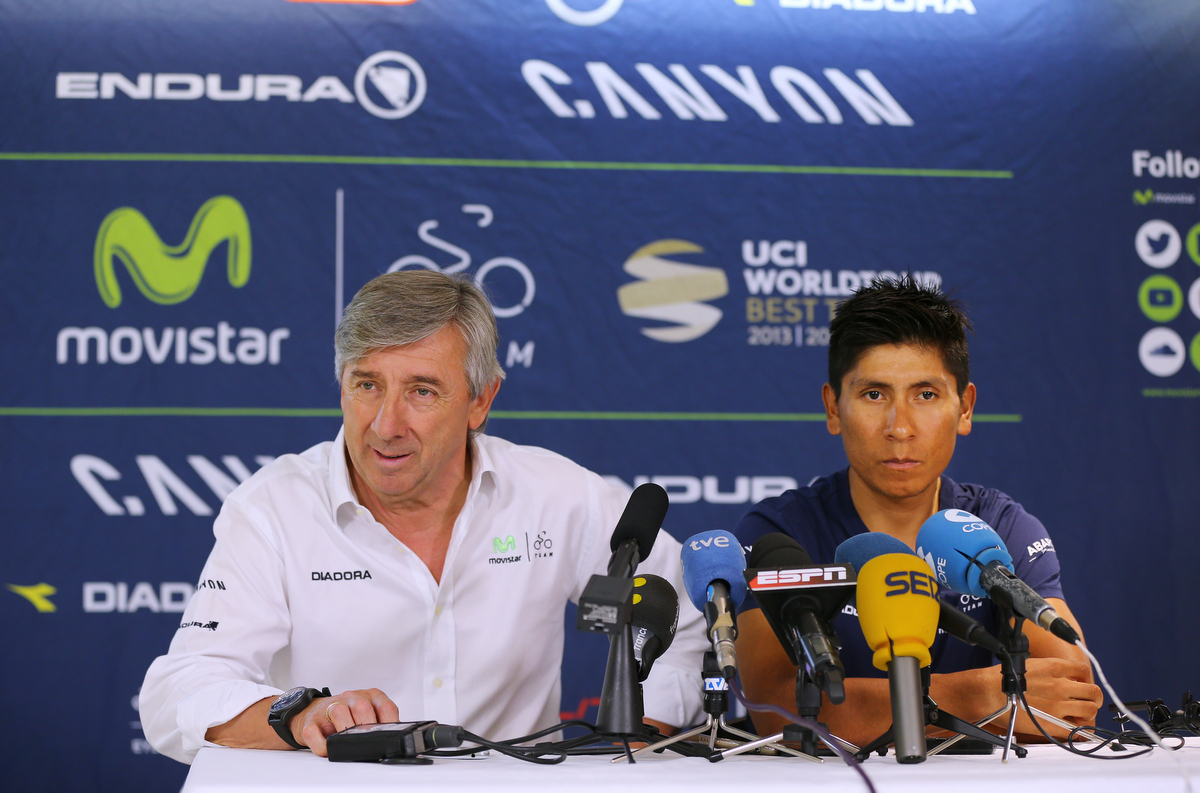
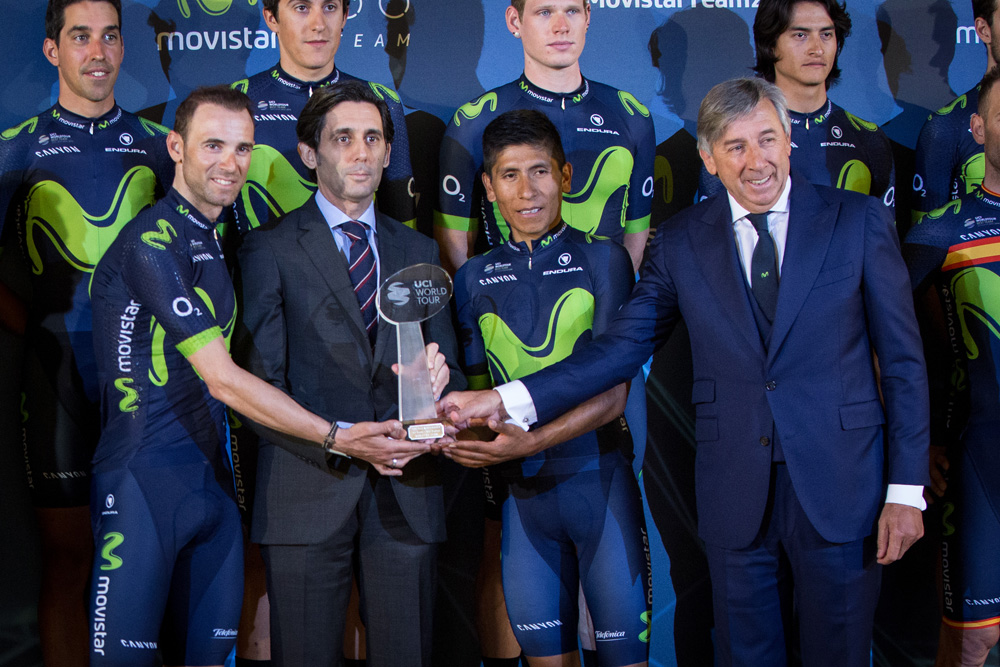
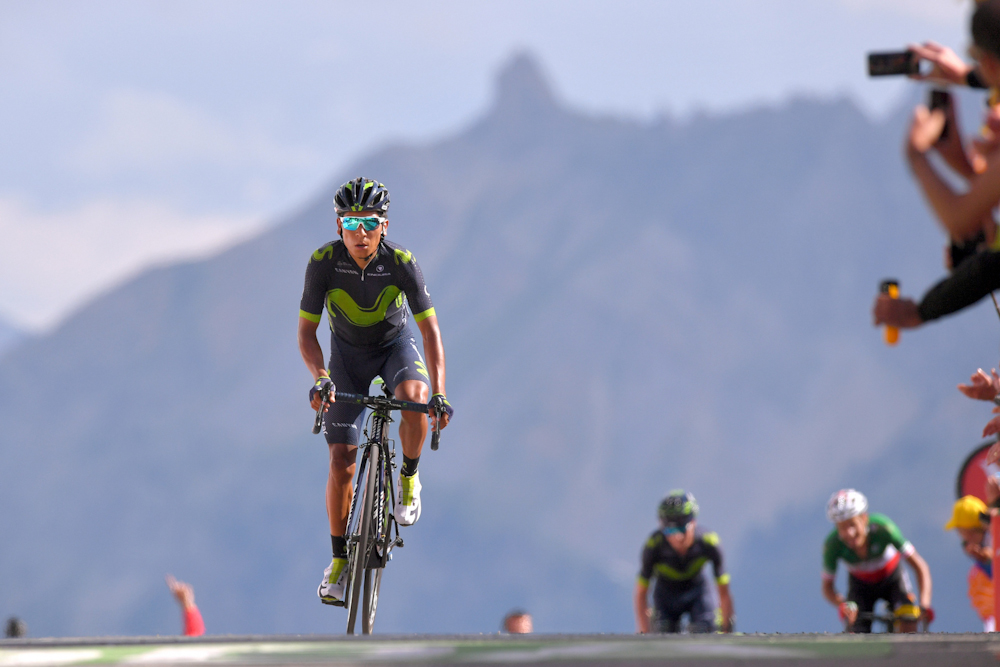
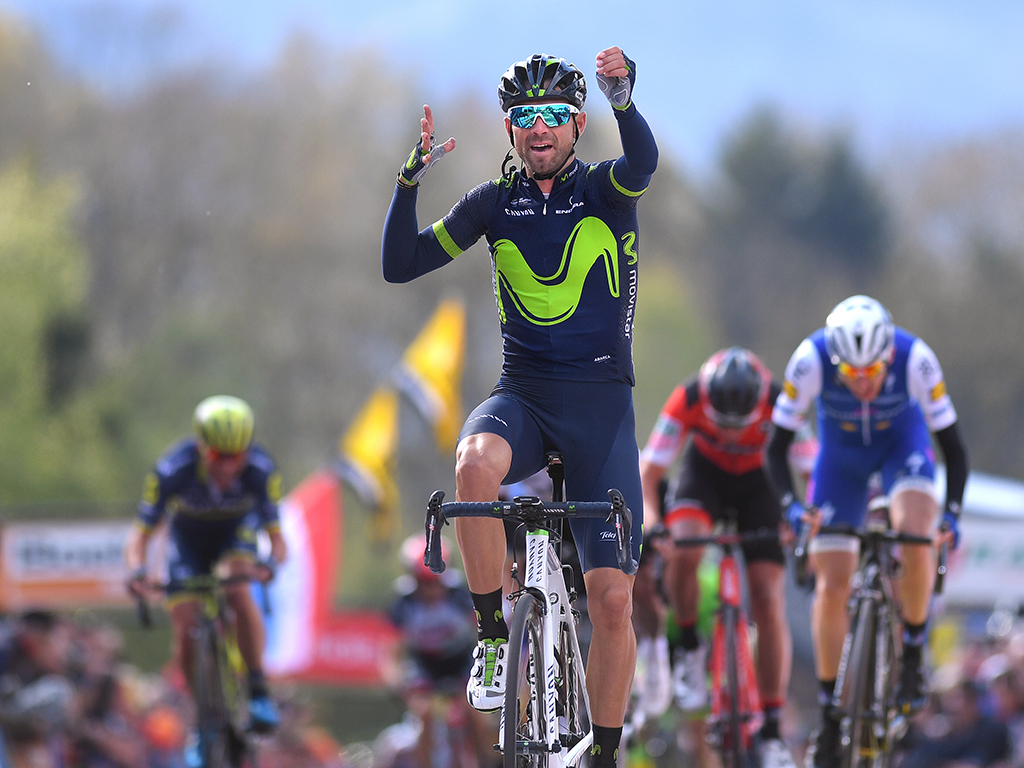
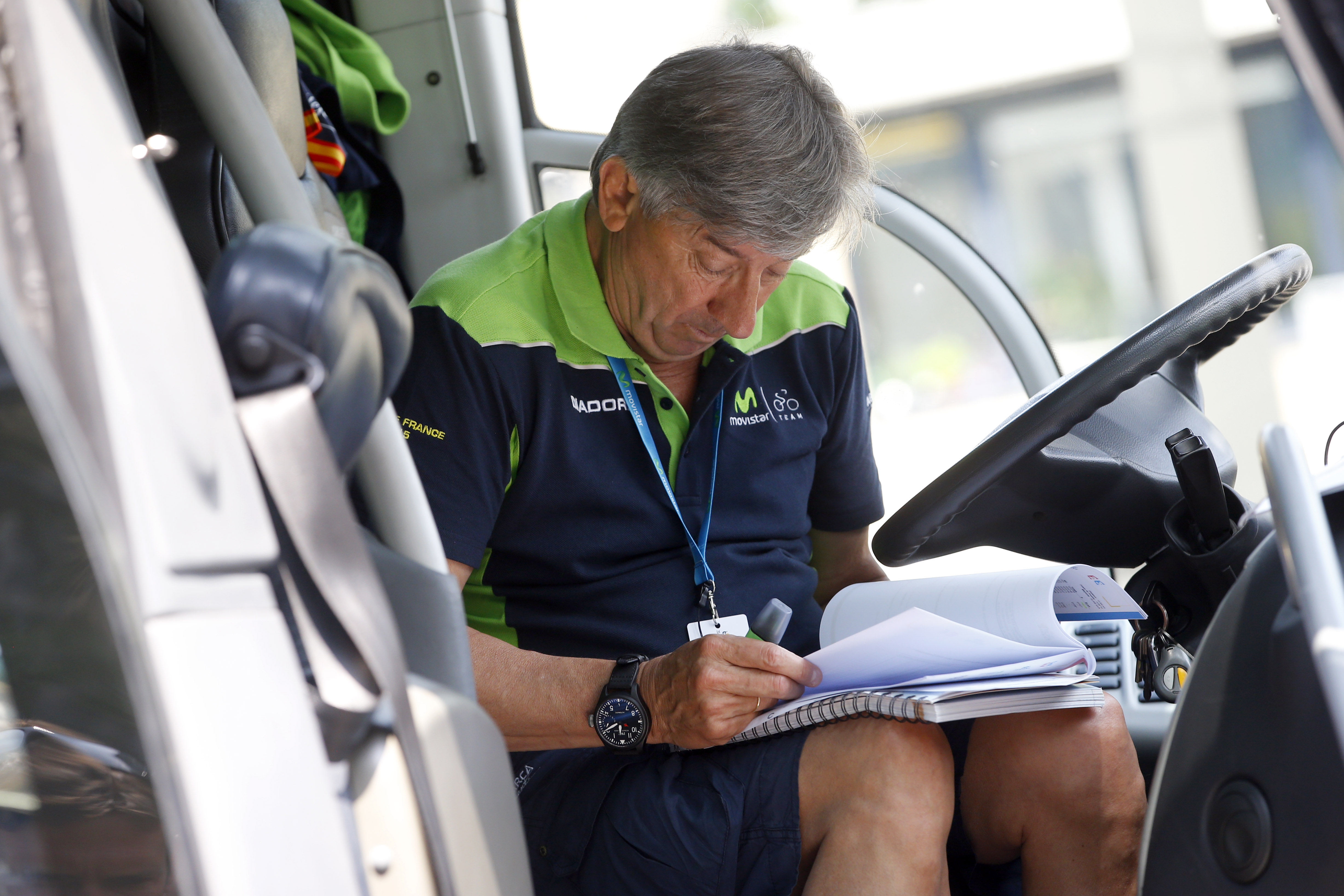
Movistar's longstanding team manager Eusebio Unzue has launched the idea that Grand Tour teams could substitute riders who become ill or injured.
Unzue's proposal came at a press conference this week after a question concerning the imminent reduction in the number of riders in Grand Tours in 2018, from nine to eight per team, with the possibility of further reductions in the future.
Unzue's idea is, on paper, very simple; if a rider is struggling, then teams would have the right – if only in the first week of a Grand Tour – to replace him with a rider from a pre-established reserve group of up to three teammates.
"Reducing the number of riders is fine, but what's abnormal is that in this sport, with the number of accidents and injuries that we have, that we're not able to find a formula that when we lose a rider, we can substitute him," Unzue reflected.
"That way we'd all be fighting in the same conditions. I'll buy the idea of eight riders at the start line, but let me reach Milan, Paris or Madrid with eight riders, too.
"I would like this sport to show some kind of humanity and, sometimes, having riders continue just because we can't replace them, what happens? They fall off, they're half-destroyed and they do stages the next day that are 200 kilometres at the speeds they go now… If we can't replace them, why not let the rider get on the team bus for two or three days and then if he's fallen off on stage three he can come back on stage six when the team doctor decides it's right?
"I'd like, at the very least in the first week, to try that out with riders. We've got substitutes ready, why can't we send somebody home to recover in the way they are cured in any other sport?"
Get The Leadout Newsletter
The latest race content, interviews, features, reviews and expert buying guides, direct to your inbox!
Unzue argued, too, that reducing the number of riders from nine to eight will not make for more spectacular racing, as has been claimed by major race organisers.
"This is a sport where for one team, fighting for a sixth place on GC, say, is a real goal. Therefore if they've got fewer riders to defend that place, they'll just be more conservative."
Spectacle
Ever since he began co-directing the Movistar team, in its first incarnation as Reynolds, in the early 1980s, the Spanish squad has regularly made Grand Tours one of their major goals of the season, and Unzue's considerable experience lends greater impact to his proposal.
However, should Unzue's idea gain traction among the powers that be, there's also the issue of who would decide whether a rider is too ill or injured to continue – the UCI, the team, an independent body, race organisers, or the rider himself.
With a season often hinging on Grand Tour performances, riders might well refuse to accept they can or should be sent home. A 'substitutes' regulation also raises questions of how results for a rider who has ridden an entire Tour and those who have 'only' ridden part of one can possibly be compared.
"What makes a race interesting is the strength of the leader, rather than the teams overall," Unzue argued, although there are those, like Alberto Contador (Trek-Segafredo) and Vincenzo Nibali (Bahrain-Merida), who claim that a significant part of Chris Froome's advantage on other contenders is based on exactly that.
"The differences between Froome and other riders is smaller than it used to be," Unzue agreed. "There are more riders able to beat him in time trials and climbs than before. But that makes the spectacle more interesting too."
Unzue also argued that a cap on budgets and wages would be "logical", but in a way so that wages are more fairly distributed from the star riders down to the domestiques.
"The problem we [the teams] sometimes have is that we all fight for the same top contenders who are on the market, and that's unfair, given how demanding this sport is," he said.
"The good news is that wages in general and budgets are rising globally, but I wouldn't be against that kind of limit."
Pavé at the Tour
Unzue also launched a blistering attack on the Tour de France's decision to include 21 kilometres of cobblestones in the first week of the 2018 race, saying simply: "Next year, the race will start twice: once before that stage and once after it.
"It will be a very eventful Tour next year, but some of what will happen will be way too surplus to requirements. It's a Tour which is going to start twice, the first day and a second time after the rest day.
"The rest of the route will have satisfied, I think, all the main contenders for Grand Tours in recent years, because there's a lot of mountain racing and that's where the Tour will probably be decided.
"There's a team time trial, too, which is not so long, even if those seconds may well decide a place up or down in the results I don't think it'll be a game-changer. And that last time trial has such difficult terrain it's more to confirm who the real leader is, particularly coming so late in the day, rather than deciding the race outright."
Referring to the two 'mini' mountain stages – stage 11 in the Alps and stage 17 in the Pyrenees – Unzue recognised that "there are some very special days, packing so much toughness into a very short distance. The Alps are really demanding and I think the organisers have tended to go for shorter climbing stages, which is a way of looking after the riders more and ensuring that when they do race, they give it 100 per cent, but for less time. You don't burn them out with the distance."
As for the pavé stage in the first week, though, Unzue slammed the Tour, saying: "Nobody who's looking to get a top result overall will have been pleased with that.
"It's not something I would take away, but in the best of cases, nobody is going to win the Tour that day. It's more how much time bad luck that day will take away from them."
Unzue is not the first director in Movistar's long history to criticise the pavé. As far back as 1992, Jose Miguel Echavarri fumed at a cobbled stage in the first week where Miguel Indurain lost time, saying "they should keep this for the Tour of Flanders."
"[Tom] Dumoulin or Nibali are good on that kind of terrain and may have fewer objections. But the problem is that all of the contenders and their teams are going to have to accept a much higher level of risk than usual, multiplied by we don't know how much," said Unzue.
"We're not going to win the Tour that day. Rather we'll all be praying to the gods that we don't end up out of the race because of bad luck. In 2015, Alejandro [Valverde] and Nairo [Quintana] got through the Tour's last lot of pavé fine," he added, although Movistar had taken the precaution of making them race a number of cobbled Classics the previous two springs to gain experience.
"But in 2014, I remember how Froome, five kilometres before the cobbles started, had crashed. And that, for the teams, is a real drama. I don't know how much the public will enjoy that, and for some teams the risk is not so high.
"But it's an added factor that means the Tour will start twice."
Alasdair Fotheringham has been reporting on cycling since 1991. He has covered every Tour de France since 1992 bar one, as well as numerous other bike races of all shapes and sizes, ranging from the Olympic Games in 2008 to the now sadly defunct Subida a Urkiola hill climb in Spain. As well as working for Cyclingnews, he has also written for The Independent, The Guardian, ProCycling, The Express and Reuters.
